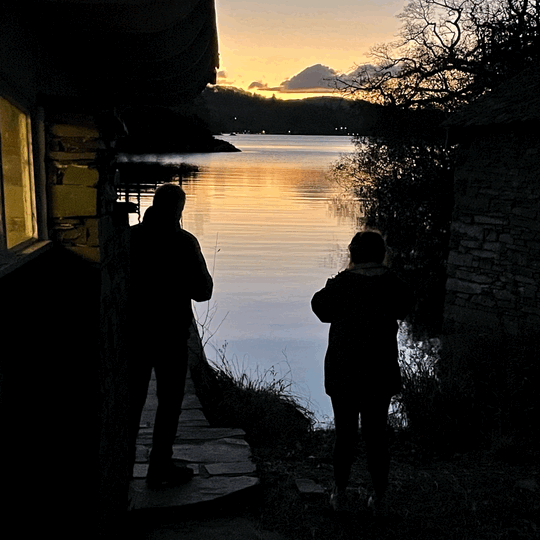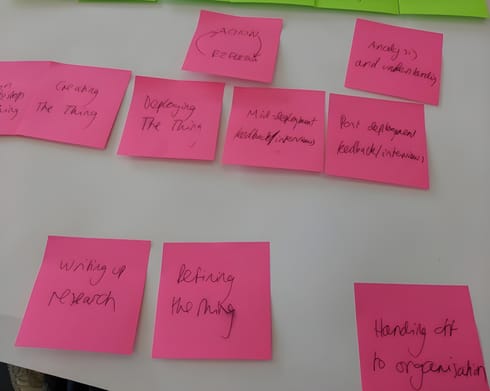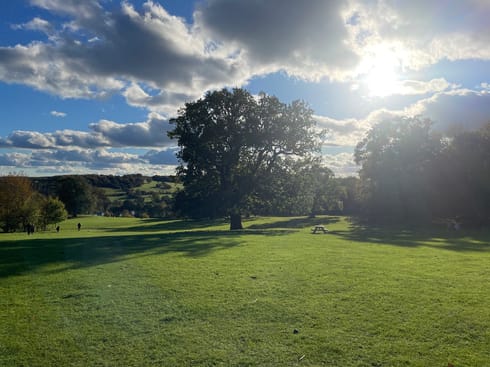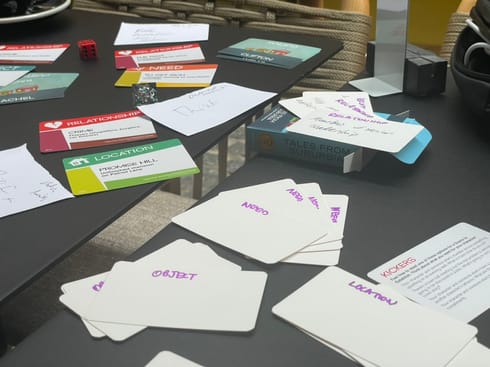
When we suggest that people having their voices heard is the best thing they can do, we miss an opportunity to focus on how people can actually become more aware of and likely to use their own power.
In our work, the phrase "people feel like their voices have been heard" comes up a lot. Sometimes it's an outcome a project has developed, sometimes we're going back and forth on wording for a report with a client, sometimes it's in a meeting we're facilitating. Whenever it comes up, it's taken for granted, an unquestionable good. Isn't it good that people feel like their voices have been heard?
It's an idea that gets thrown around so much that I think people become numb to what it's actually saying. Is it good to "hear people's voices"?
What are we asking?
The question that leads to the statement "people feel like their voices have been heard" might be something like "Do you feel like your voice has been heard? How much?"
Unfortunately, this is asking a few different questions at once. Am I asking about session inclusion and participation here? Am I asking about wider project inclusion and participation here? Am I asking about your own felt sense of power and agency and your ability to affect change? We should ask more precise questions that help to distinguish between these meanings.
If we're interested in understanding whether or not our project is good at creating inclusive environments that enable deeper participation in our sessions, consider asking something like "Did you feel like you could take part in this session as much as you wanted to? What made you feel that way?"
If we're interested in understanding how effectively our project helps people to feel more engaged in making a difference in their communities or lives, consider asking something like "Does this project help you learn anything about your own power and how to use it? If so, what has it helped you learn?"
The feeling of being heard
For both meanings of this question, it's not inherently a good thing to feel as if your voice has been heard. Our feelings don't necessarily correlate to actual reality, particularly in circumstances where there is an uneven power relationship between people (as there often is in the situations this question is being asked). Does my feeling of being heard correspond to an experience of actually being listened to, or just being made to feel as if I'm being listened to?
Some of my PhD research was into the multiple meanings of "not being heard". Sometimes not being heard is about someone not paying attention to you ("not listening"), sometimes it's about someone listening extractively, and sometimes it's about people not following through on what they have supposedly heard. When I ask a question about someone's voice feeling heard, am I asking about all three of those things at once? If I feel like you've heard me a bit but not fully, how can I express that?
It matters who asks the question "Do you feel like your voice has been heard?" How do they ask it? Is it flippant, at the end of a session? Do I think something bad will happen to me or the person leading the session if my voice hasn't been heard? Is it on a form with a 5-part scale? What does the feeling of being heard actually feel like? Where do I feel it in my body?
By focusing on the feeling of being heard, we artificially limit people's expression of agency. We position the people we are working with as if the highest form of them expressing their agency and power is speaking ("using their voice") and someone else doing something with it ("hearing"). That of course begs the question...
Who hears? Can we have their job instead?
When we suggest that people having their voices heard is the best thing they can do, we miss an opportunity to focus on actual "empowerment". I'm not the biggest fan of that word either, as it suggests that those of us who are involved with helping people to feel more powerful are conferring that power on them, rather than helping them to become aware of an innate capacity they already have. It's a useful shorthand to distinguish between that and "voices being heard".
Who hears the voices being heard? How did they get the power to hear, rather than speak to someone else who might hear them? Of course, there are people we might want the ear of—those with traditional formal power, for example. If we're interested in meaningful "empowerment", though—meaning, we're interested in people being more aware of their own capacity to use their agency, what's possible now, what might be possible in the future—then we need to shift how we think about power.
We might want to influence people with traditional formal power—but them doing the act of "hearing" doesn't make our programme a success, because it has a tendency to suggest that the "voices" of the people we work with are a commodity that is only useful for Those Who Hear. It's that kind of approach that results in extractive or tokenistic listening, and it keeps communities imagining that they don't have the power to create change because only Those Who Hear can.
This doesn't mean there isn't a place for us to ask about and celebrate people feeling like their voices have been heard—it often tells us great things about our inclusion and participation practices, and it might be a prerequisite for deeper power work, so it's useful to know. But how do we move people from having their voices heard to becoming more aware of their own power, imagining a future they want, and taking action towards it?
When we say "people feel like their voices have been heard" and don't accompany it with a deeper analysis of power, we miss an opportunity to do deeper systems change work.



